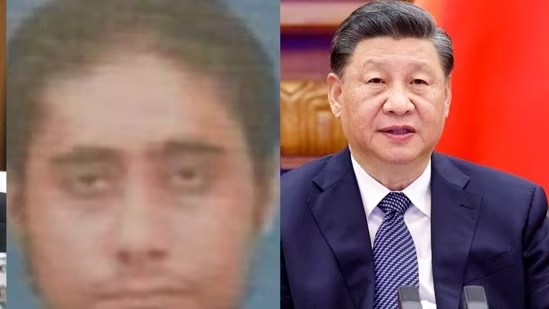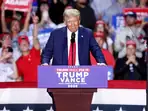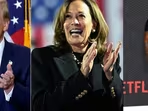Unpacking the architecture of global counter-terrorism
Over the past few years, India has stepped up coordination with Western partners such as the United States and France for listing members of terrorist groups at the United Nations Security Council, as the measure has emerged as a key tool to pressure countries to act against designated individuals.  PREMIUM
PREMIUM
Most of these efforts have been aimed at the listing of top leaders of Pakistan-based terror groups such as Lashkar-e-Taiba (LeT) and Jaish-e-Mohammed (JeM), which have engaged in cross-border terrorism against India for decades. The listing of an individual or group under the UN Security Council’s various sanctions regimes makes them subject to an asset freeze, travel ban and an arms embargo.
Such listings have rarely led to the capture or prosecution of designated individuals. For instance, mob boss Dawood Ibrahim was designated as a global terrorist under the UN Security Council’s al-Qaeda sanctions regime in 2003, but Indian officials say he continues to live in and operate from Pakistan.
The listings, however, serve as key tools to pressure UN member states, especially when used in conjunction with other mechanisms such as the Financial Action Task Force (FATF). This too has been part of the overall coordination on counter-terrorism between India and its Western partners.
The listing of terrorists at the UN Security Council was in the spotlight again this week because of China blocking a fresh move by India and the US to designate LeT operative Sajid Mir, a key player in the 2008 Mumbai terror attacks who directed the 10-member team responsible for the carnage in the country’s financial hub.
China had initially placed a “technical hold” on the listing of Mir last year, a move reminiscent of the way in which Beijing had held up the designation of JeM founder Masood Azhar for almost a decade, before relenting in 2019.
India has also used its domestic law, the Unlawful Activities Prevention Act (UAPA), to designate 54 individuals and 44 terror groups. People familiar with the matter said designations under the UAPA help buttress a demand for similar listings under the domestic laws of partner countries and at the UN Security Council.
The latest additions to the list of terror groups include The Resistance Front (TRF), a proxy for LeT that was created in 2019 and has been blamed for attacks in Jammu and Kashmir, and People's Anti-Fascist Front (PAFF), a proxy for JeM that too was created in 2019 and has been accused of radicalising youngsters.
The list of terror groups also includes LeT, JeM, Harkat-ul-Mujahideen, Hizb-Ul-Mujahideen, United Liberation Front of Assam (ULFA), National Democratic Front of Bodoland (NDFB), al-Qaeda in Indian Sub-Continent (AQIS), Islamic State (IS), Jamaat-ul-Mujahideen Bangladesh and Khalistan Tiger Force (KTF).
Prominent terrorist leaders listed under UAPA include LeT founder Hafiz Saeed, his son Talha Saeed, JeM chief Masood Azhar, LeT operations chief Zakiur Rehman Lakhvi, one of the masterminds of the Mumbai attacks, Dawood Ibrahim and his aide Shaikh Shakeel alias Chhota Shakeel, Sajid Mir, Babbar Khalsa International leader Wadhawa Singh Babbar, and Sikhs For Justice leader Gurpatwant Singh Pannun.
The list of 54 terrorist individuals designated under UAPA also includes several top leaders of LeT, JeM and Indian Mujahideen.
“All of these steps help put the squeeze on terrorist groups and individuals, making travel by the listed individuals and their access to funds more difficult,” one of the people familiar with the matter said.
The people also pointed to the sharp decline in the public appearances and activities of leaders of LeT and JeM after Pakistan was placed on the “grey list” of the FATF in 2018 for failing to do enough to tackle terror financing and money laundering. Pakistan was removed from FATF’s list of countries subject to enhanced monitoring of financial transactions in 2022, and members of the international watchdog used the intervening period to pressure Islamabad to do more to crack down on terror groups.
Though Pakistan has never acted against LeT founder Hafiz Saeed in connection with the Mumbai attacks, citing a lack of evidence, authorities were forced to prosecute him in several terror financing cases, resulting in several prison sentences that he is reportedly serving. The pressure from FATF also resulted in LeT and JeM pushing many of their cadres into Afghanistan, where they continue to be based.
India has used the case of Sajid Mir to once again highlight its demand for overhauling the UN Security Council’s sanctions regimes, including improving working methods to ensure the designation of individuals and groups is done based on genuine and evidence-based objective proposals and asking UN member states to give reasons for blocking proposals – something that isn’t required under the existing setup. The Indian side has also indicated that proposals to block designations should not be submitted under the garb of anonymity, a move clearly aimed at China’s stymying of several moves to designate Pakistan-based terrorists.
Enjoy unlimited digital access with HT Premium
Subscribe Now to continue reading Start 14 Days Free Trial Already Subscribed? Sign In
Disclaimer: The copyright of this article belongs to the original author. Reposting this article is solely for the purpose of information dissemination and does not constitute any investment advice. If there is any infringement, please contact us immediately. We will make corrections or deletions as necessary. Thank you.
Title:Unpacking the architecture of global counter-terrorism
Url:https://www.investsfocus.com









